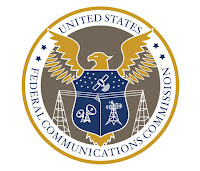On December 23, the FCC submitted to Congress the latest version of its Report on Robocalls and Transmission of Misleading or Inaccurate Caller Identification Information. The annual report is required by the TRACED Act. It contains data regarding informal consumer complaints to the FCC regarding robocalls, Commission enforcement actions, and an overview of private efforts to combat unwanted and harmful robocalls.
The report cites data indicating 37,736 informal consumer complaints were filed at the FCC regarding robocalls during the first eleven months of 2022. Thus, it appears likely that informal complaints about robocalls were slightly lower in all of 2022 compared to a year prior. There were 46,189 such complaints in 2021. Also, the report cites data indicating that 37,752 informal complaints regarding caller ID spoofing were filed in the first eleven months of 2022, indicating that yearly total for such complaints was notably less than the 57,075 complaints filed in 2021. (Note: A single filed complaint can involve more than one reported instance of an illegal robocall or a call from a spoofed ID.)Among the actions taken by the FCC in 2022 to combat unwanted and illegal robocalls – many of which originate from foreign countries – the report acknowledged the Commission's 2022 Gateway Provider Order. The order requires gateway providers to respond to traceback requests within 24 hours, block calls that clearly are conduits for illegal voice traffic, and implement "known your upstream obligations." Under the order, gateway providers are required to apply STIR/SHAKEN caller ID authentication technology to all unauthenticated foreign-originated session-initiated protocol (SIP) calls with U.S. North American Numbering Plan (NANP) numbers by June 30, 2023.
Regarding private efforts to combat robocalls and caller ID spoofing, the report provided an overview of the progress of the Industry Traceback Group to identify the path and origin of illegal robocalls in order to stop them. According to the report:
[B]etween January 1, 2022 and November 21, 2022, the Industry Traceback Group initiated over 2,600 tracebacks, a traceback initiation rate which is 10% higher than in 2021 and 20% higher than in 2020. The Industry Traceback Group also played a key role in combating the scourge of illegal robocalling campaigns from foreign-based providers. In addition to identifying 146 U.S.-based providers suspected of originating apparently illegal robocalls, the Industry Traceback Group also identified 82 foreign-based originating providers and 145 U.S. gateway providers.
Additionally, the report notes that the Industry Traceback Group is working with providers to incorporate STIR/SHAKEN into the traceback process. Hopefully, the expanded implementation of STIR/SHAKEN and traceback efforts will further curb illegal robocalls.
However, it ought to be recognized that STIR/SHAKEN's utility is likely limited to the context of voice calls made using NANP numbers – and that it is not a technology that ought to be imposed by administrative agency rule on providers of text messaging services.
That basic point is made in my January 4, 2023 Perspectives from FSF Scholars, "Innovation Will Protect Consumers From Illegal Text Messages Better Than New FCC Rules." As explained in that paper, the FCC has proposed a blocking and caller ID requirement on wireless providers for text messaging services despite the fact that there does not appear to be any solid evidence that text messages from invalid, unallocated, or unused numbers are a problem for wireless consumers. Wireless providers already provide up-front vetting for would-be senders of mass text messages. It is unlikely that such a costly mandate actually would reduce the volume of illegal robotexts and protect consumers. And although the Commission's notice of proposed rulemaking appears to favor requiring the STIR/SHAKEN to combat illegal texts, even the agency acknowledges that the technology doesn't exist for text messaging services. Voice and text messaging technologies are different, and so it should be no surprise that the best solutions to combatting illegal robocalls and robotexts also are different. For more details, see my Perspectives.





